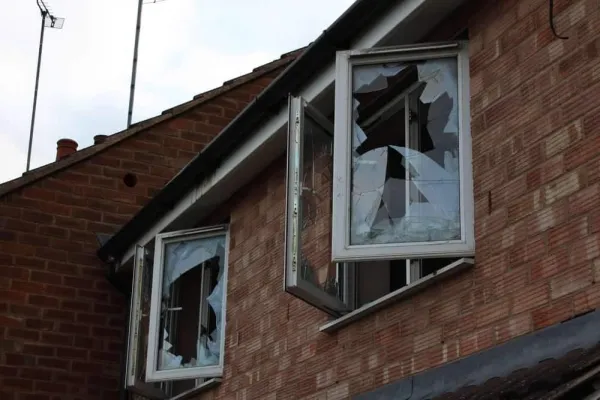In response, thousands have demanded that Ofgem (the regulator in this space) make some drastic changes. Not long after, the Energy Price Cap changed.
Energy prices have undoubtedly been a hot topic in the United Kingdom over the past few years. Whether you live in England, Wales, Scotland, or Northern Ireland, your monthly bills will have almost certainly increased.
Understanding the Energy Price Cap is crucial as it directly impacts your monthly bills and financial planning. Our blog below provides comprehensive information on the current cap, its setters, its purpose, its frequency of changes, and more.
Keep reading for all the details you need.
What is the Energy Price Cap?
The Energy Price Cap, a powerful tool, limits the amount suppliers can charge for each unit of energy in the United Kingdom.
In recent months, the price cap has been reduced by 12%, empowering consumers and saving the typical consumer at least £200 (and, on average, a fair bit more).
Ofgem, the Office of Gas and Electricity Markets, is the government regulator responsible for setting the Energy Price Cap. Their role is pivotal in maintaining fair prices for consumers and preventing any single company from monopolizing the market.
The energy price cap will affect almost everyone in the UK, as it applies to suppliers’ standard and default tariffs, which most households are on.
The price cap covers you if you pay for your electricity and gas by either:
- Standard credit (payment made when you get your electricity and gas bill)
- Direct Debit
- prepayment meter
- Economy 7 (E7) meter
Remember that even though the energy price cap is the same for everyone, it is rare for any two households to pay precisely the exact figure. This is because each house uses different amounts of electricity and gas daily.
Who sets the Energy Price Cap?
The Office of Gas and Electricity Markets (or Ofgem) is the government regulator that sets the price cap. They are an independent body that monitors the market and ensures fair prices for consumers and fair competition for all suppliers (in other words, no single company has a total monopoly).
Why does the Energy Price Cap Exist?
The purpose of the Energy Price Cap is very straightforward: to make sure that energy prices do not become too high or unreasonable for consumers.
This is particularly important since the majority of residents in the UK use one of the same few suppliers. The largest include British Gas, EDF Energy, E. ON, Npower, Scottish Power, and SSE, although there are plenty of other organisations you can use, too.
What is a Daily Standing Charge?
Even if you do not use energy daily, you are still required to pay to have access to energy (if you choose to use it) in the UK. This is known as a ‘Daily Standard Charge’ – in other words, the minimum amount you are charged, even if you don’t use energy that day.
If you have access to both gas and electricity in your property, the average Direct Debit standing charge is £334 per year from 1 April 2024 onwards.
This is higher than a few months ago when it was £303 per year. The daily standing charge can differ depending on where you live in the country.
For example, the daily standing charge is less expensive in London and more costly in North Wales. According to Ofgem, this is because of the varying costs of transporting power to where you live.
How often does the Energy Price Cap change?
Ofgem reviews the Energy Price Cap every three months. Several years ago, the changes took place every six months, but it is now reviewed more regularly as consumers encourage there to be a closer watch on prices becoming unreasonable.
Many experts anticipate that the cap will fall again in July 2024, although this is yet to be seen.
Do Businesses Benefit from the Energy Price Cap?
No. The Energy Price Cap only applies to household energy usage and does not apply to businesses.
Each supplier determines the energy prices businesses pay, which is why most companies contact several organisations for a quote to see which is most effective.
You may see variance in a business’s rate. For example, organisations that use vast amounts of energy may get slightly discounted rates since their energy usage is so high. Energy brokers exist for this purpose—to negotiate on behalf of companies and get them the best possible deal.
Generally, energy usage rates for businesses tend to be less expensive than for households. This is because many industries and companies use enormous amounts of energy – for example, chemical, petroleum, hospitals, and food/beverage manufacturers.
What happens if I can’t pay my Energy Bills?
If you find it challenging to pay your energy bills, rest assured that you have plenty of options to reduce your energy consumption or seek financial assistance from the government, providing a safety net and support in times of need.
First, you should speak directly to your supplier to see if they can assist. For example, some companies can agree on a payment plan where you find a flexible new way to make your bills.
Some of the schemes that exist to help you pay your bills include:
- Warm Home Discount Scheme
- Winter Fuel Payment
- Cold Weather Payments
- Household Support Fund
- Cost of Living Payments
Many of these initiatives are only available to people with certain benefits, so you should research each scheme to determine if you are applicable and how to apply.
Improving your house’s energy efficiency could also improve its long-term performance. For example, suppose your Energy Performance Certificate rating is low. In that case, your energy usage is likely higher, whereas if your house is energy efficient, you may need to use less electricity and gas.
Does Energy Efficiency impact property value?
Energy efficiency is a hot topic at the moment – and as a general rule, houses that are more energy efficient tend to be considered more valuable. This is because they will have reduced monthly energy bills and, therefore, can save the owners a large amount of money (compared to a less efficient house) in the long term.
What happens if you don’t pay your energy bill?
If you do not pay your energy bill, your supplier may cut off your supply. If you cannot meet your payments and don’t know where to turn, you could be thrown into all sorts of financial difficulties.For people facing enormous financial difficulty, selling your property fast (within seven days) to a cash house buyer can be an excellent option. Although you will receive below the market rate for your property, you can get the funds into your account once you complete and therefore get your finances (and life) back on track.
















